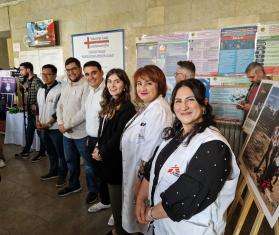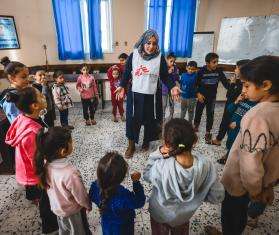Geneva, 1 December 2003 - Doctors Without Borders/Medecins Sans Frontieres (MSF) welcomes the ambitious objectives unveiled by the World Health Organization (WHO) today to get three million people with AIDS on treatment by 2005. WHO has immediately moved closer to meeting this target by announcing that a quality-assured twice-a-day pill is available to treat AIDS.
Getting AIDS medicines to the millions who need it requires treatment models that are much better adapted to resource-poor settings. "Reducing the number of pills that patients have to take makes treatment much simpler and more affordable," says Morten Rostrup, MD, President of the International Council of MSF.
The twice-a-day pill, which combines 3 different medicines, is made by several generics companies. Today, the Indian generic pharmaceutical company Cipla is offering the treatment for a price of $140 per patient per year to a number of organizations, including MSF. Quality has been assured by the WHO pre-qualification process. The vast majority of the 9,000 patients currently treated by MSF's AIDS programs will benefit from the latest price reduction.
However, in its plan to fight HIV/AIDS, WHO's target price for treatment is $400 per patient per year for 2004. "WHO's drug price targets lack ambition and do not reflect prices that are currently available. Today, drug prices have fallen by another 50%. WHO should encourage this trend in order that universal access to AIDS treatment become a reality," continued Dr Rostrup.
To date originator pharmaceutical companies have not co-operated to combine their medicines into a single pill; only generics companies offer these products. Governments must therefore make use of the safeguards in their patent laws to overcome patent barriers in order to access these simple and affordable medicines.
"Every time drug prices come down, more people can afford treatment," said Dr Rostrup. "But for the poorest, no price will be affordable: governments of both developing and developed countries must meet these costs. This means more international funding to fight AIDS."



